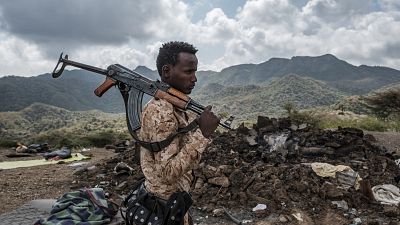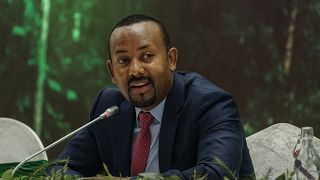Ethiopia
The Ethiopian parliament on Thursday endorsed a recent cabinet decision to classify the Tigray People's Liberation Front (TPLF), which has long dominated Ethiopian politics and until recently ruled the Tigray region, as a terrorist organization.
The resolution, which was unanimously passed by ruling party MPs, also includes the Oromo Liberation Army (OLA), an armed group active in the Oromia and Amhara regions.
The classification of the TPLF as a terrorist entity makes the prospect of peace talks in Tigray even more remote, six months after the federal army launched a major military operation to overthrow the regional authorities there.
The TPLF dominated Ethiopia's ruling coalition between 1991 and 2018, when Abiy Ahmed was appointed prime minister.
Ethiopia's attorney general, Gedion Timothewos, assured that ordinary citizens would not be affected by the new measure, while warning potential foreign countries to collaborate with the two groups.
The US-based Tigray Information and Communication Centre said the measure would lead to "mass arrests" and give the government more room to persecute Tigrayans, who make up about 6 per cent of the population.
Mr. Abiy declared victory in Tigray in late November when the army captured the regional capital Mekele, but TPLF leaders remain on the run and fighting persists.
The conflict has caused a serious humanitarian crisis, with Doctors Without Borders (MSF) expressing concern on Wednesday about "alarming" levels of malnutrition among the population in Tigray. The UN's International Organization for Migration (IOM) estimates that one million people in the region have fled their homes because of the crisis.
The OLA was formed as a result of a split in the Oromo Liberation Front (OLF), an opposition group that has renounced armed struggle since its leaders returned from exile after Mr. Abiy, Ethiopia's first Oromo leader, came to power.
Ethiopian authorities have long accused the TPLF of joining forces with the OLA to fuel ethnic violence and undermine the authority of the federal government.
Regional and parliamentary elections are scheduled for June 5 in Ethiopia, the first since Mr. Abiy came to power, where he will seek to consolidate his power by gaining legitimacy at the ballot box.
But many obstacles stand in the way of the elections: the war in Tigray, where the vote has been postponed indefinitely, political and ethnic violence and immense logistical challenges in this country of some 110 million people.
AFP












Go to video
World Food Programme to halt aid for 650,000 women and children in Ethiopia
02:15
Ethiopia's Tigray struggles to care for war wounded
Go to video
Is Ethiopia at war again? A look at the rebellion in one of its most powerful regions
Go to video
Lt. Gen. Tadesse Werede named the new interim president of the Tigray region
Go to video
Court allows case of promoting Ethiopia violence against Facebook to proceed
Go to video
Ethiopia’s PM urges Tigray to nominate new leader